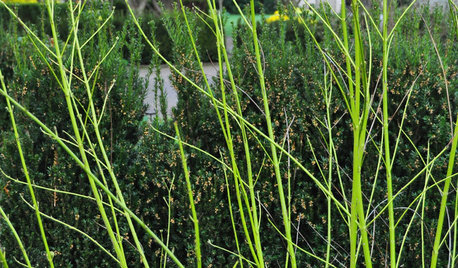Lime
freyja5
14 years ago
Related Stories

Wake Up Your Garden With Lime-Colored Plants
A sprinkle of bright lime foliage can invigorate darker green garden areas and enliven shady spots all around your landscape
Full Story
TURQUOISESummer Color Combo: Turquoise and Lime
These Two Eye-Popping Hues Will Cool You Off on Hot Days
Full Story
COLORColor of the Week: 10 Tangy Ways with Citrus Green
Add some zest to your home with a little — or a lot of — lively lime
Full Story
COLORWake Up With Bright Green
Add Life to a Room With Greens That Go From Lime to Chartreuse
Full Story
PRODUCT PICKSGuest Picks: Bursts of Green for Spring
Get a jump start on the season of fresh beginnings with home decor in shades of chartreuse, lime and grass green
Full Story
YELLOWCitrus Hues Add Zest to Rooms
You almost don't need to clean when you wash your spaces with the refreshing colors of lemons, limes and oranges
Full Story
ORANGEA Cheerful Palette to Fall For
Mix orange with periwinkle and lime for a surprisingly perfect autumn color combo
Full Story
ENTERTAININGGuest Picks: Tea Party With a Modern Palette
Turn a traditional tea party on its head with the colors of citron, peach and lime
Full Story
BATHROOM DESIGNRoom of the Day: Kids and Adults Share a Bright 40-Square-Foot Bathroom
Splashes of lime green add a playful touch to this efficient and economical second bath
Full StorySponsored







freyja5Original Author
Kimmsr
Related Professionals
Inglewood Landscape Contractors · Milford Landscape Contractors · Ramsey Landscape Contractors · Seymour Landscape Contractors · Uxbridge Landscape Contractors · Vacaville Landscape Contractors · Wareham Landscape Contractors · Yuba City Landscape Contractors · Campbell Driveway Installation & Maintenance · Eagle Mountain Fence Contractors · Lexington Fence Contractors · Piedmont Fence Contractors · Prairieville Fence Contractors · Van Nuys Fence Contractors · Cayce Fence Contractorsorganicnoob